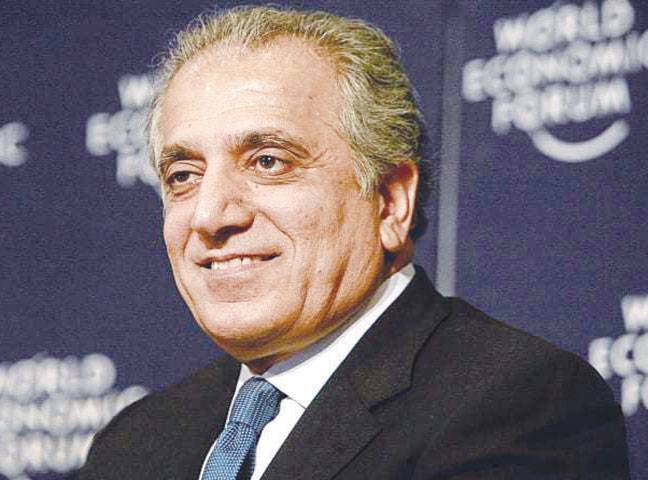Kabul - Hopes for a breakthrough in a push to end Afghanistan’s grueling conflict suffered a major setback Friday, after a key summit between the Taliban and Afghan officials was cancelled.
The so-called intra-Afghan dialogue, due to take place in Doha this weekend, fell apart at the last minute in a row over the large number of delegates Kabul wanted to send.
The talks, scheduled for Friday between Afghan government and Taliban representatives, were considered a significant first step towards finding a negotiated end to the war in Afghanistan and the eventual withdrawal of US troops, which would end the US’s longest war.
A list of 243 people was announced by Qatar on Thursday. That list differed from Afghan President Ashraf Ghani’s list of 250 people, which included around 50 women, according to a senior government official, who spoke on condition of anonymity.
The Taliban did not immediately comment but Taliban spokesperson Zabihullah Mujahed on Wednesday questioned the size of the government delegation, saying it was not “normal” and that they had “no plans” to meet with so many people.
In a statement late Thursday, President Mohammad Ashraf Ghani’s office said the Qatari government has failed to meet the legitimate demands of the Afghan people by not accepting an inclusive delegation of some 250 men and women, and instead imposing a list of its own.
“After preparations were finalised for the delegation’s trip [to Doha], surprisingly a list came from Qatar last night which lacked proper public representation and was an insult to the national spirit and decision of the people of Afghanistan, and is not acceptable to the Afghans,” the presidency said.
The collapse comes at a critical time and amid continued bloodshed. The Taliban now control or influence about half of Afghanistan and 3,804 civilians were killed there last year, according to a United Nations tally.
The United States, which is leading an effort to end the war, signalled its disappointment and urged both sides to return to the table, though organisers gave no hint about when the conference might be rescheduled.
Sultan Barakat, who heads the group that was to host the event, said in a statement the postponement was “necessary to build further consensus as to who should participate.”
“Clearly the moment is not yet right,” added Barakat, the director of the Center for Conflict and Humanitarian Studies.
President Ghani’s administration had on Tuesday announced a list of 250 people from all walks of Afghan life, including government figures, who it wanted to send to Doha. But the Taliban poured scorn on the lengthy list, saying the conference is “not an invitation to some wedding or other party at a hotel in Kabul.”
Though the insurgents insisted they would only talk to Ghani’s government in a “personal capacity,” any contact between the two parties in Doha would have been hugely significant, especially at a time when Afghanistan is being ripped by fresh violence after the Taliban announced their annual spring offensive.
Kabul blamed the Qatari government for the summit’s derailment. In a statement, the presidential palace said Qatar had rejected the long list of delegates and suggested a shorter one which was “not acceptable.”
On the Taliban side, the militants complained Friday that it was “not fair” Ghani had wanted to send such a large delegation, and that “negotiations with the powerless Kabul administration is a waste of time.”
US disappointment
The Doha summit was separate from ongoing direct talks between the Taliban and the US.
While the insurgents did meet with Afghan politicians outside the government in Moscow in February, they have steadfastly refused to meet with Ghani and his administration, which they view as a puppet regime.
US Special Representative to Afghanistan Zalmay Khalilzad said he was “disappointed” the summit had been postponed. “We’re in touch with all parties and encouraged that everyone remains committed to dialogue,” the envoy wrote on Twitter.
“Dialogue is and always will be key to a political roadmap and lasting peace. There is no alternative. I urge all sides to seize the moment and put things back on track by agreeing to a participant list that speaks for all Afghans. I stand ready to help if our help is needed,” Khalilzad said.
Barakat said both parties had undertaken “tireless and well-intentioned” efforts to find a way for the summit to proceed, but ultimately a “shared understanding on how to achieve inclusivity couldn’t be reached.”
After US-Taliban talks in February, Khalilzad announced a “draft framework” for a peace deal, though he warned major hurdles remain.






